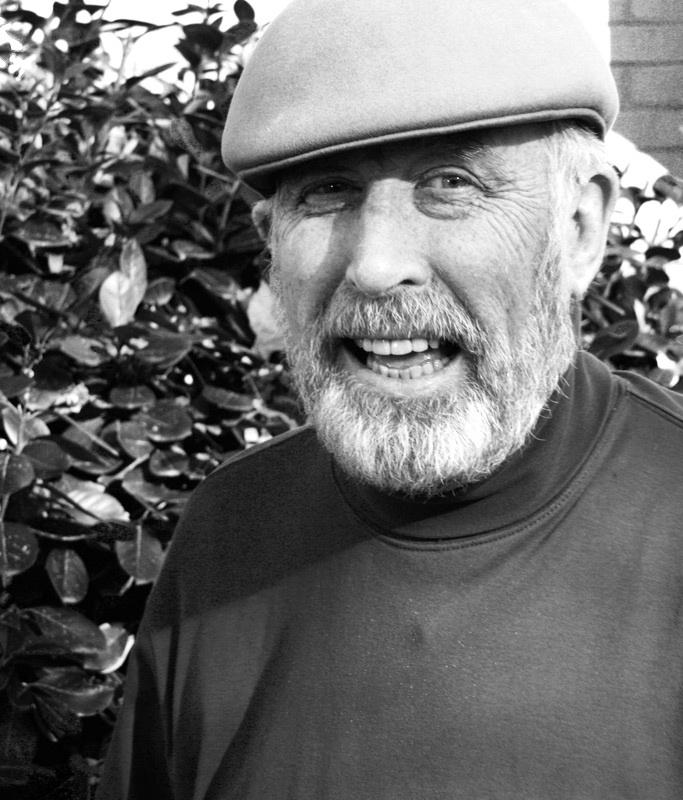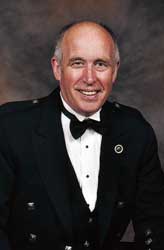Spring Break has come and gone.
We enter now into a season of the year that is not quite spring and decidedly not winter.
We are either refreshed or exhausted, depending upon how we spent our precious Spring Break, and we have returned to the job of pushing back the frontiers of ignorance.
Sometimes, as deadlines creep slowly toward us through the growing grass of spring or are launched upon us by procrastinating faculty or inattentive students, we have brief moments to reflect on the meaning of it all. What, in the end, is accomplished by a university education or, at least, the framed certificate attesting to years of thought and study?
Many of us currently approaching the end of the trail will look back over long years of searching for the eternal truth only to find that some of the most important lessons of life were presented to us when we were scarcely old enough to grasp their importance.
Now we can see that which was obscure back in those all-too-short days of youth, when valuable truths were brushed aside in favor of a copy of last year’s test, or nuggets of useful wisdom were dropped by the roadside to make room for the lyrics to a new “song” from Enima (I think that’s how his name is pronounced) or Bouncie (a lovely young lady).
In any case, as I look back at college, an environment that I haven’t really left since 1964, I find that the things I learned often had very little to do with classes, papers or tests.
I benefited from all the mental activity, but when I make a list of life-changing bits of knowledge they seem to have more to do with evenings, weekends, associations and friends.
We are entering the season of banquets.
Every student organization and faculty association will want to have a reflective breaking of bread to award plaques and certificates, announce new officers and thank those who are leaving service after months of interminable meetings resulting in plans for another meeting. All banquets will have an elected speaker – some of them will do so on purpose.
Here’s what I learned about banquets, and I think it explains after-dinner drinks.
On banquets: late in the evening, with a full tummy, is no time to encounter the eternal truths of the universe, no matter how badly some banquet speaker wants to share them.
This is also the time of year when students realize that there are no more tomorrows into which they may push the next deadline.
They will not realize that the people to whom they will deliver these excuses are hardened veterans of the excuse business and are capable of recognizing a work of fiction at 30 paces in a thick and heavy fog.
On bad excuses: “Nothing is lost if one does not seek to say the unsayable.” – L. Wittgenstein.
As the stress of the semester increases like the air temperature – whether from tests, election campaigns or relationships – it is always wise to remember that sticks and stones can send you to the infirmary, but names can kill a friendship.
There is no reason that someone who loves you like a brother at dawn will decide to say something hateful and upsetting by lunchtime.
It is more likely that someone – and it could be you – is having a bad day. Misunderstandings occur more often than slanders, and poor word choices should be forgiven at least as easily as snoring is.
On the matter of useful communication: “There are two rules: First, don’t forget to listen. Second, never, ever lose your sense of humor.” – R. H. “Doc” McGaughey.
Pressures increase as spring finals draw near. It’s more than just your sinuses; it’s the growing realization that there is a reckoning here and the consequences could be significant.
On multitasking: multitasking is an absolute myth. It will only become reality when the human brain evolves to the point at which it can outperform a cellphone.
Finally, we come to the crux of the matter: getting ready for finals.
I think I was in my senior year of college when I discovered the secret to success on finals: there is no secret.
Grades, of course, are very different from final exams. Grades may not even depend on examinations, but they almost always depend on the acquisition of knowledge.
Regular classroom attendance always has its advantages, but it is much like church services for very pious people: nothing really changes, but you have a good feeling about yourself and a chance to speak with people who feel as you do – and may be wiser.
On lectures: “I cannot see that lectures can do so much as reading the books from which the lectures are taken.” – Samuel Johnson.
So, in the end, it is the work of the whole semester that ends in finals: final exams, final papers, final lectures and final goodbyes to classmates. For some, it is hard; for others it is easy to step aboard some metaphorical ship bound for an undiscovered country.
May you find these last seven hectic weeks to be memorable, if not easy. It only took me 50 years to learn this one:
On achievement: “Anything is easy if you know it.” – H. A. White.
Column by Robert Valentine, senior lecturer in advertising
































































































